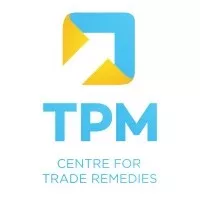- in United States
- within Media, Telecoms, IT and Entertainment topic(s)
Updates concerning Measures by and against the USA
CBP issues guidance on the additional 25% tariffs for imports from India (27 Aug)
On 26th August 2025, U.S. Customs and Border Protection (CBP) issued guidance regarding the implementation of additional tariffs on certain imports from India effective 27th August 2025. For imports of Indian origin articles, that are entered for consumption or withdrawn from warehouse for consumption, on or after 12:01 a.m. eastern daylight time on 27th August 2025, an additional 25% tariff will be imposed. Such tariff would be in addition to the reciprocal tariff imposed earlier, raising the total tariff rate to 50%. However, no tariff shall be imposed on products classifiable under headings 9900.01.85 - 9900.01.89 and on products other than those for personal use included in accompanied baggage of persons arriving in the United States. Further, the guidance also listed exceptions to the additional duties. For more details, kindly refer the link herein.
The Federal Circuit Holds the IEEPA Fentanyl and Reciprocal Tariff Illegal (29 Aug)
On 29th August 2025, the Federal Circuit in V.O.S Selections, Inc. v. Trump concurred with the decision of the Court of International Trade that the fentanyl and reciprocal tariffs imposed under the International Emergency Economic Powers Act (IEEPA) are unlawful as the IEEPA does not clearly authorize the President to impose tariffs. However, the Federal Circuit found it appropriate to remand the matter back to the Court of International Trade to consider whether a universal and permanent injunction issued was appropriate. In the interim, the tariffs imposed shall continue.
Modifying the scope of reciprocal tariffs and establishing procedures for implementing trade and security agreements (05 Sep)
On 5th September 2025, the US President issued an Executive Order to modify the scope of reciprocal tariffs and to establish procedures for implementing trade and security agreements. Under the new order, some items previously excluded will now face reciprocal tariffs while certain goods under tariff codes have been removed from the list. The changes take effect for goods entering the U.S. or withdrawn from the warehouse on or after 8th September 2025. For more details, kindly refer the link herein.
The US Department of Commerce initiates Section 232 investigations into medical goods, machine tools and industrial robots (25 Sep)
On 24th September 2025, the USDOC initiated Section 232 national security investigations into imports of medical goods (including PPE, medical consumables, equipment, and devices) and robotics/industrial machinery (such as programmable systems, CNC machines, metalworking tools, lasers, and industrial ovens). The investigation will examine whether the US production can meet demand, the risks of dependence on foreign supply chains, and whether foreign trade practices threaten the US security. Based on findings, the President may impose tariffs, quotas, or other restrictive measures.
Additional measures imposed on imports of timber, lumber and their derivative products into the United States of America (29 Sep)
On 29th September 2025, the President of USA issued a proclamation under Section 232 imposing additional duties of 10% on softwood lumber, 25% on certain upholstered wood goods, and 25% on kitchen cabinets and vanities. The measures were imposed pursuant to a report by the Secretary of Commerce, which stated that the quantities and circumstances of imports of such products were weakening the US economy, threatening closures of wood mills and disruptions of wood product supply chains, and diminishing the utilization of production capacity of the domestic wood industry. However, the imports from the United Kingdom, European Union, and Japan would be subjected to more favourable terms. The Secretary of Commerce shall monitor the magnitude and impact of these imports, propose adjustments, and by 1st October 2026, submit an update on hardwood imports and domestic industry capacity to the President.
Global Updates
The European Union appeals dispute panel report regarding duties on imports of biodiesel from Indonesia (26 Sep)
On 26th September 2025, the European Union announced its decision to appeal the panel report in European Union – Countervailing Duties on Imports of Biodiesel from Indonesia (DS618), even though the WTO Appellate Body currently remains non-functional at present. Indonesia expressed regret over the appeal under the status quo, and the European Union reiterated its invitation for Indonesia to join the Multi-Party Interim Appeal Arbitration (MPIA) as a way to preserve a binding appellate option in the absence of a functioning Appellate Body.
Zambia Trade Policy Review (23 and 25 Sep)
The fifth review of the trade policies and practices of Zambia took place on 23 and 25 September 2025. The basis for the review is a report by the WTO Secretariat and a report by the Government of Zambia. Zambia is focusing on aligning its growth strategy with rising global demand for critical minerals like copper while managing drought risk; despite macroeconomic challenges, foreign direct investment in mining is rebounding, and the government is pushing diversification into manufacturing, agriculture, and energy. Copper remains the backbone of exports, while Zambia is actively integrating into regional trade frameworks, improving trade facilitation, modernizing its trade and investment regimes, and implementing reforms across its tax, procurement, intellectual property, and regulatory landscapes to support more resilient and inclusive development.
The content of this article is intended to provide a general guide to the subject matter. Specialist advice should be sought about your specific circumstances.


